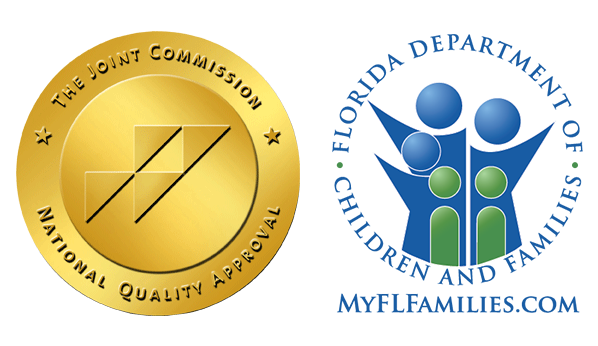A prominent question that people often want to know the answer to is: “does alcoholism run in families?” In short, no one factor leads to alcohol abuse. Instead, there are a wide variety of factors at play.
Although genetics do contribute to the risk that someone will develop an addiction, genes do not make it inevitable. Many other factors contribute to addiction, such as a person’s surroundings, peer pressure, the age they start drinking, and mental health disorders.
Nobody is born with an alcohol use disorder. However, if a person feels that they may be at risk of developing alcoholism, they can do things to minimize their chances of drinking unsafely.
What Is Alcoholism and Alcohol Use Disorder?
Alcoholism and alcohol use disorder (AUD) are interchangeable terms used to describe alcohol dependence. Ranging from mild to moderate to severe, those with mild AUDs usually use alcohol in an unhealthy way but can stop drinking if they want to. On the other hand, those with severe AUDs are alcohol dependent and cannot quit due to physical and psychological addiction.
Related: Sober Living Florida
Alcohol dependence, or severe alcohol use disorder, is characterized by an inability to stop drinking alcohol despite its consequences on an individual’s health and well-being. People who are alcohol dependent have built up a tolerance, meaning they need more alcohol to feel its effects. This causes many people to drink more and gradually develop an addiction.
They may continue drinking to avoid the unpleasant side effects associated with alcohol withdrawal, which result from alcohol affecting the brain chemistry after prolonged or heavy drinking.
Is AUD Genetic?
Many people who have watched family members struggle with an unhealthy relationship to alcohol often question whether AUDs are genetic as they worry they may be at risk of substance abuse. Due to the complex combination of genetic factors, social, and environmental factors, it is impossible to be born with an AUD. Families can, however, influence the chance that a family member will develop an AUD.
Studies have shown that there is a 50% chance of genetic predisposition for someone developing an AUD. Genetic predisposition is when someone has an increased chance of engaging in a behavior or having a disease due to genes. Having a genetic predisposition does not mean that a person will develop AUD; it just means that it may contribute to the likelihood of having one later in life.
However, the exact reason someone develops an AUD is very complex, especially as multiple factors can cause the disorder, and a singular reason is not certain.
In terms of the genes, there isn’t a singular ‘alcohol gene.’ Instead, there are hundreds of genes and variants in someone’s DNA that increase the risk of developing an AUD. The combination of each gene can influence the extent to which someone may suffer from an AUD, so identifying certain genes can be hard.
As multiple genes influence the chance of someone suffering from alcohol abuse, they may miss a generation. For example, a child may be predisposed to alcohol use disorder if their parents do not have it, but their grandparents do. In the same way, a child will not necessarily develop an AUD if their parents have the gene.
Genetic factors can impact various things related to alcohol abuse, such as the severity of hangovers, the effect alcohol has on an individual, how likely someone is to stop drinking or carry on, and the likelihood of someone engaging in impulsive, risky behaviors.
Behavioral Genes
There is a correlation between the likelihood of developing a mental health disorder if a mental illness runs in the family. These ‘behavioral genes’ can be inherited by a child and could heighten the chances of someone developing substance use disorder. Mental illness increases the likelihood of someone developing an alcohol use disorder because they may seek out substances as a form of self-medication.
As both environmental factors and hereditary factors can contribute to someone developing mental illness, the complexity of the relationship that genes and substance abuse have is apparent.
Why Else May Alcohol Abuse Run in Families?
Genetic links are not the only reason AUDs often run in families – they only account for about half of the likelihood. Another reason is the environmental factors surrounding those living with a family member suffering from alcohol abuse.
In a family where alcohol is commonly used, alcohol abuse is often normalized as something that can help people relax. In these settings, alcohol may also be a standard coping mechanism, which can influence other family members, especially children, to use alcohol in unhealthy ways.
For example, if a child watches their parents abuse alcohol at an early age, they may be more likely to create a frightening and difficult home environment for a child. They may be more neglectful, aggressive, have financial trouble, or have mental illnesses. The home life for the child may be inconsistent, chaotic, and unpredictable. This can push someone into binge drinking or drug abuse to cope with the stress.
How Do Social and Environmental Factors Contribute Towards AUDs?
Regardless of whether family members suffer from a substance use disorder or not, various other factors can push someone toward alcohol addiction. These include:
- Environmental factors. A person’s environment can play a huge factor in the likelihood of developing an alcohol addiction. The more common alcohol is in a place, be it in the home or a society, the more likely someone is to develop an alcohol use disorder.
- Social factors and cultural factors. The social setting and culture that someone is in can put them at higher risk of developing an alcohol problem. For example, in settings like college where heavy drinking is encouraged, people are more at risk of drug abuse. Peer pressure can also cause someone to drink. In cultures where alcohol is discouraged, individuals struggling with alcohol consumption may be less likely to seek addiction treatment.
- Religion. Believing in a religion does not make it impossible to misuse alcohol, of course, but it can lessen the risk. If a religion has a prominent influence on the laws and rules of a place, such as the home, and the availability of alcohol, those living there are at less risk of abusing alcohol.
- Age. One of the risk factors of drinking is age. If a person engages in underage drinking, their risk for abusing alcohol increases. This is particularly true if people start drinking alcohol before the age of 15 or before they can legally drink. Those in their early 20’s and late teens are more likely to binge drink rather than drink moderately. However, many older adults also engage in daily drinking, leading to drinking to excess.
- Employment. High-stress jobs increase the likelihood that someone will develop problems with drinking, especially as stress is a significant factor in drinking in an unhealthy way.
Conclusion
The main thing to stress is that even though a person’s life circumstances, mental health, and genes have a role to play in increasing the risk of drinking and AUD, they do not determine it. Alcohol use disorder can run in families, but it does not mean that a person’s future is set in stone.
Even if an individual falls into one of the many risk factor categories, they may never develop an alcohol use disorder. Just because a close family member may be struggling with addiction does not mean that they are necessarily destined.
However, it is important to be aware of risk factors. If a person, such as yourself or a loved one, feels worried about alcohol addiction, it is never too late or too early to seek support and treatment.
Talk to a healthcare or addiction professional to discuss developing healthy coping skills and avoid the negative consequences of heavy drinking.











